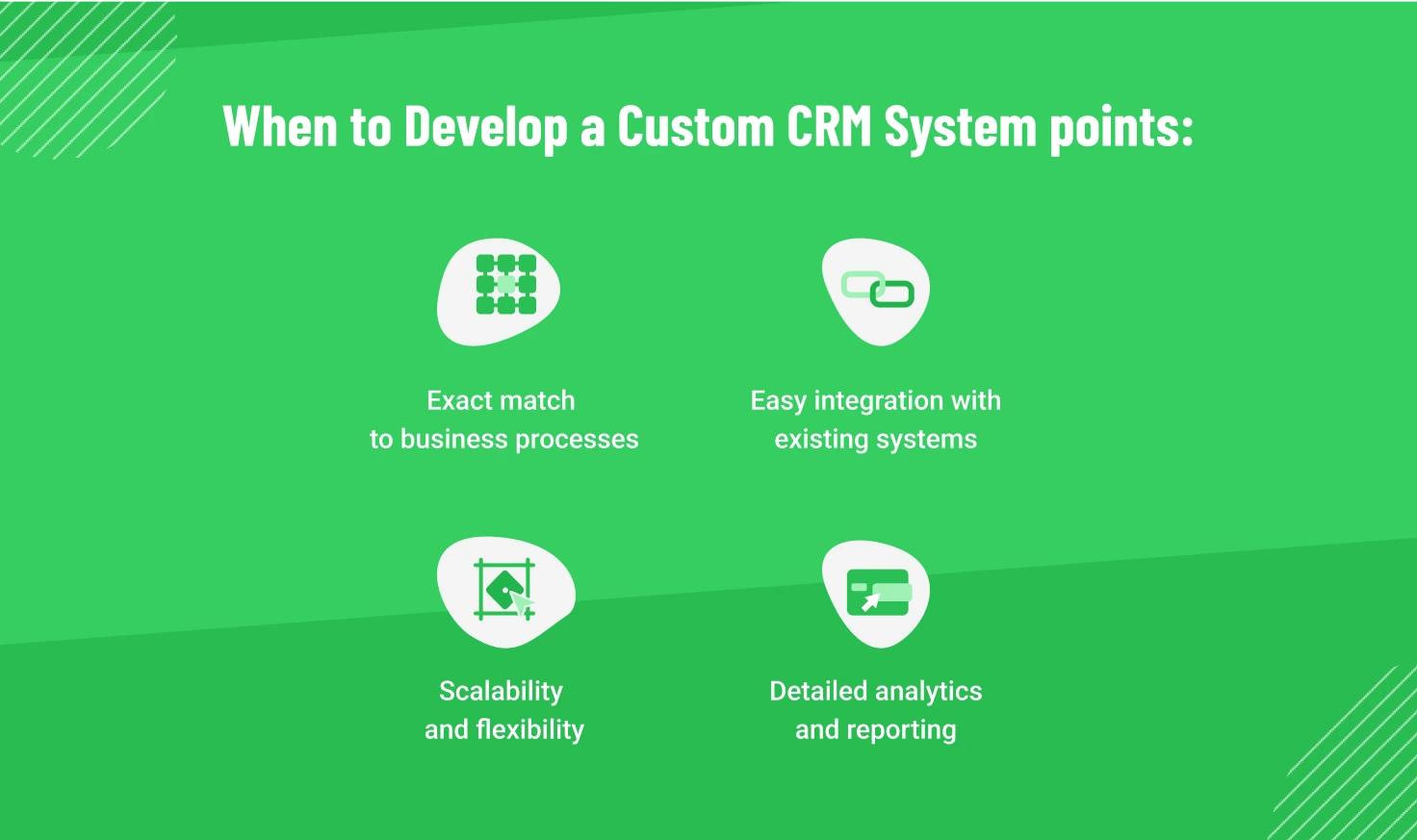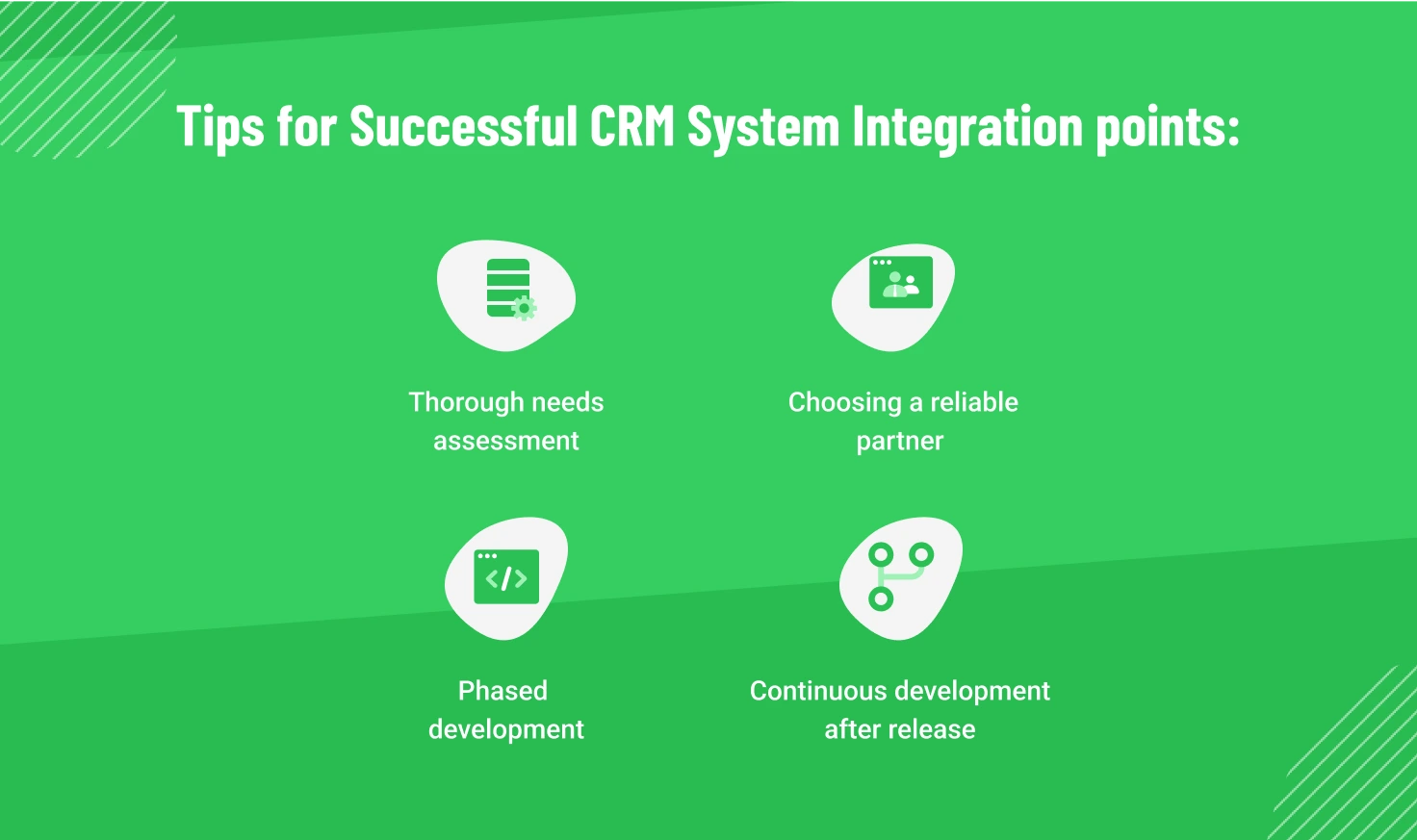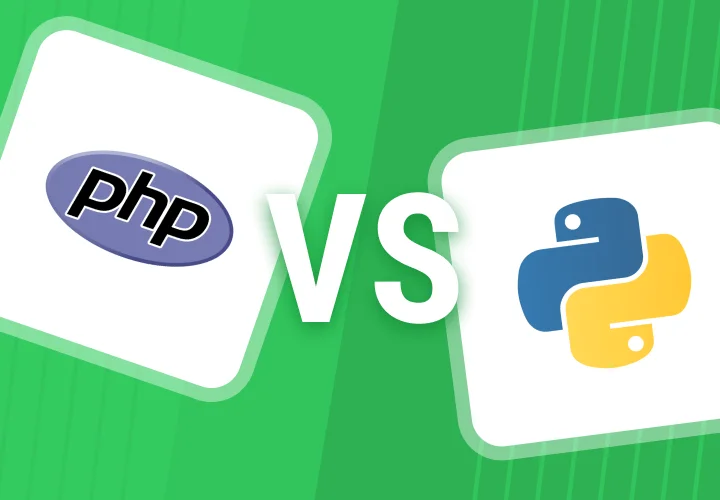CRM System Development: How a Custom Solution Changes Business Processes
Table of contents
- What Is a CRM System, and How Does It Differ From ERP?
- Features of Ready-Made CRM Systems
- The unavailability of necessary integrations
- Limited customization
- Scaling challenges
- When to Commission the Development of a Custom CRM System
- Exact match to business processes
- Easy integration with existing systems
- Scalability and flexibility
- Detailed analytics and reporting
- When Developing a Custom CRM System Might Be Unnecessary
- Cost of a Custom CRM System
- Tips for Successful CRM System Integration
- Thorough needs assessment
- Choosing a reliable partner
- Phased development
- Continuous development after release
In 2024, the CRM software development market for businesses exceeded $100 billion, and forecasts predict it will reach $260 billion by 2032. Companies must now position themselves across multiple channels, both online and offline. This makes internal processes expensive, and communication becomes more complex and confusing. Therefore, CRM systems for businesses have become an indispensable tool.
These programs are divided into ready-made and custom CRM systems. In this article, we’ll consider:
- The difficulties a business faces when using a ready-made solution.
- When to order custom CRM system development and how much it costs.
- How to achieve process acceleration from the implementation of a CRM system.
What Is a CRM System, and How Does It Differ From ERP?
The main goal of CRM system development is to give businesses a tool to accelerate and control customer relationships, including sales, customer support, and marketing processes. CRM systems aim to improve external indicators, such as customer satisfaction, company ratings, and revenue.

ERP systems optimize internal business processes, including financial management, production, supply, and personnel. They help increase overall efficiency and reduce company costs. Using both programs together helps effectively manage all aspects of the business.
Features of Ready-Made CRM Systems
A ready-made solution is a universal tool that already has basic capabilities for business processes built in, such as integrations with databases. This is a good start for small companies when they don't need to connect different services or have a small influx of customers. However, this seeming versatility creates multiple difficulties for large businesses. Let's consider each.
The unavailability of necessary integrations
One of the key disadvantages of off-the-shelf CRM systems is the lack of integration with the tools and platforms that the company uses. This leads to data fragmentation and additional manual work.
For example, some companies need to develop a custom ERP system since it is impossible to integrate and create a proprietary desktop application with other systems in a boxed solution. Implementing functionality to manage employee work schedules is a good example.
Limited customization
The inflexibility of pre-built CRM systems can hinder business growth. For example, a company may be limited by the interface and functionalities of a generic CRM and unable to display additional content without intervention from the solution's developers. Additionally, modules included in out-of-the-box CRM software, such as sales funnels and reporting tools, may not align with specific business requirements, negatively impacting employee productivity and overall business performance.
If a CRM system complicates the team's work, then employees will resist its implementation. For example, if a CRM system does not distinguish between employee ranks and forces employees to enter a login and password each time for authorization. This may irritate the team, reduce engagement in automation, and, therefore, reduce the company's speed. This turns CRM systems for businesses into an expensive solution that no one uses.
Scaling challenges
As your business grows, your CRM system should evolve with it. One-size-fits-all systems often lack the flexibility to scale and adapt to a company's changing needs as it enters new markets, expands its product line, or develops new sales channels.
When to Commission the Development of a Custom CRM System
Investing in developing a CRM system provides the most significant benefits to companies that need to adapt the system to business processes, integrate with other systems and services, scale, and provide full-fledged analytics.

Exact match to business processes
When creating a custom CRM, the company's specific workflows are taken into account: sales automation, monitoring of key indicators, or accounting for employees' working time. Developing a CRM system eliminates unnecessary functionality that clutters the interface and confuses new employees.
Easy integration with existing systems
Custom CRM development ensures easy integration into current processes and synchronization with already used tools, such as marketing platforms, analytics systems, and databases. As a result, an ecosystem is created where all data is available in a single interface. This improves user experience, work efficiency, and decision-making quality.
Scalability and flexibility
A custom CRM system for business is designed to grow with the company and quickly adapt to new requirements. This ensures long-term viability and support, no matter how fast the business grows.
Detailed analytics and reporting
Developing a custom CRM system that considers the company's specifics includes advanced analytics capabilities relevant to the industry, customer behavior, and internal work processes. Such reports display more detailed information than standard ones. They help make informed decisions and build strategic development plans.
When Developing a Custom CRM System Might Be Unnecessary
While developing a CRM system offers functionality and flexibility for further business development compared to an "off-the-shelf" solution, sometimes it can result in unnecessary costs. Here are the main situations when choosing an off-the-shelf solution may be justified:
- Standardized business processes. A ready-made CRM system can meet the needs of a business, including lead management, sales tracking, and customer support. This may be the optimal solution if the company's work processes are typical for the industry and do not include complex operations.
- Limited budget. How much does a CRM system cost? Ready-made solutions are usually cheaper in the short term. The cost of implementing a CRM system based on a ready-made product may be more acceptable for small businesses or startups.
- Need for quick implementation. A ready-made system may be the best solution if a CRM system is needed as soon as possible. Out-of-the-box platforms can be set up in 1-2 days, while CRM system development will take several months.
Cost of a Custom CRM System
The cost of implementing a CRM system varies depending on the chosen approach. Ready-made solutions may seem more affordable initially, but hidden fees for setup, integration, and subsequent updates increase the overall cost. Custom CRM development requires an initial investment but ultimately reduces costs in the long run.
When evaluating the cost of a CRM system, it is essential to consider the required capabilities, the complexity of integration with existing systems, the need for staff training, and the cost of maintenance and support for the solution. The price of implementing a CRM system depends on many factors.
Tips for Successful CRM System Integration
Let's take a look at what you should consider when implementing a CRM system.

Thorough needs assessment
To implement a CRM, it is necessary to understand how the system can improve existing processes clearly. This includes analyzing current methods of working with clients, lead generation, marketing campaign automation, and so on. A needs assessment will help determine areas where the CRM system will be especially useful and will allow prioritization when creating a development roadmap.
Choosing a reliable partner
When developing a custom CRM system, it is important to choose partners who have experience in CRM services and are well acquainted with your industry (like manufacturing, for example). Such a team of developers will find it easier to understand the business's unique needs and specifics. An experienced contractor company will help avoid mistakes when choosing the technology stack and functionality of the project.
We have more than 10+ years of experience in full-cycle development of mobile applications, web portals, and corporate systems in various industries, including manufacturing, E-commerce, retail, eLearning, and fintech. We utilize native and cross-platform technologies, including the Flutter framework, which helps us develop high-quality solutions within tight deadlines and budget requirements.
Phased development
An iterative approach to development helps the company adapt the CRM system flexibly to its changing needs and priorities. This allows the company to identify and correct errors at an early stage and reduces the risks of unsuccessful implementation.
In our projects, we apply agile methodology, which breaks down the development process into separate stages. At the end of each stage, the client receives certain functionalities of the developed product and can fully control the process.
Continuous development after release
Supporting and improving the system will help the product stay relevant as new technologies and trends emerge. A business must continuously update the capabilities of its CRM system for successful market competition and the satisfaction of employees who work with the program daily.
Updated on Apr 25, 2025





